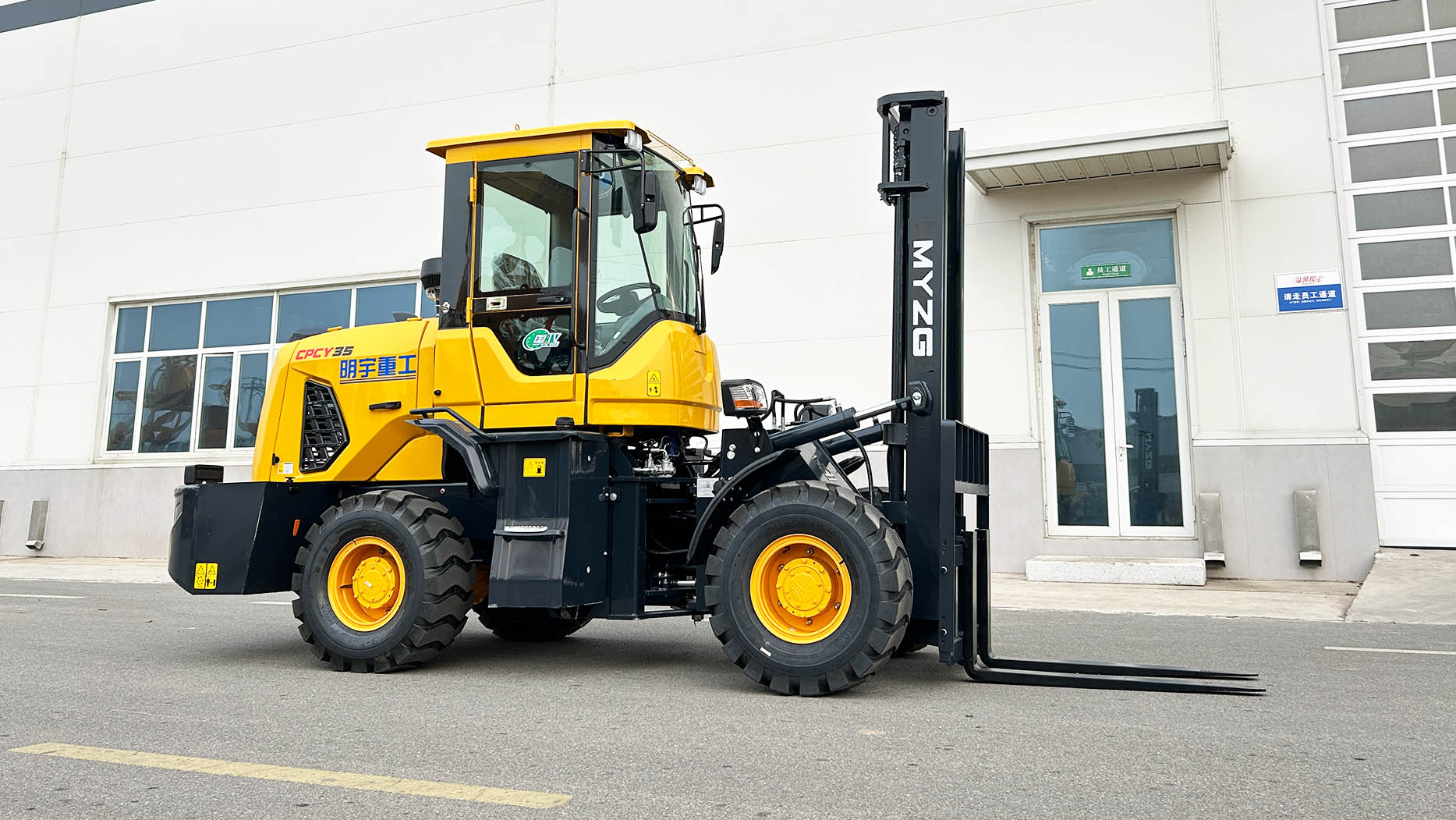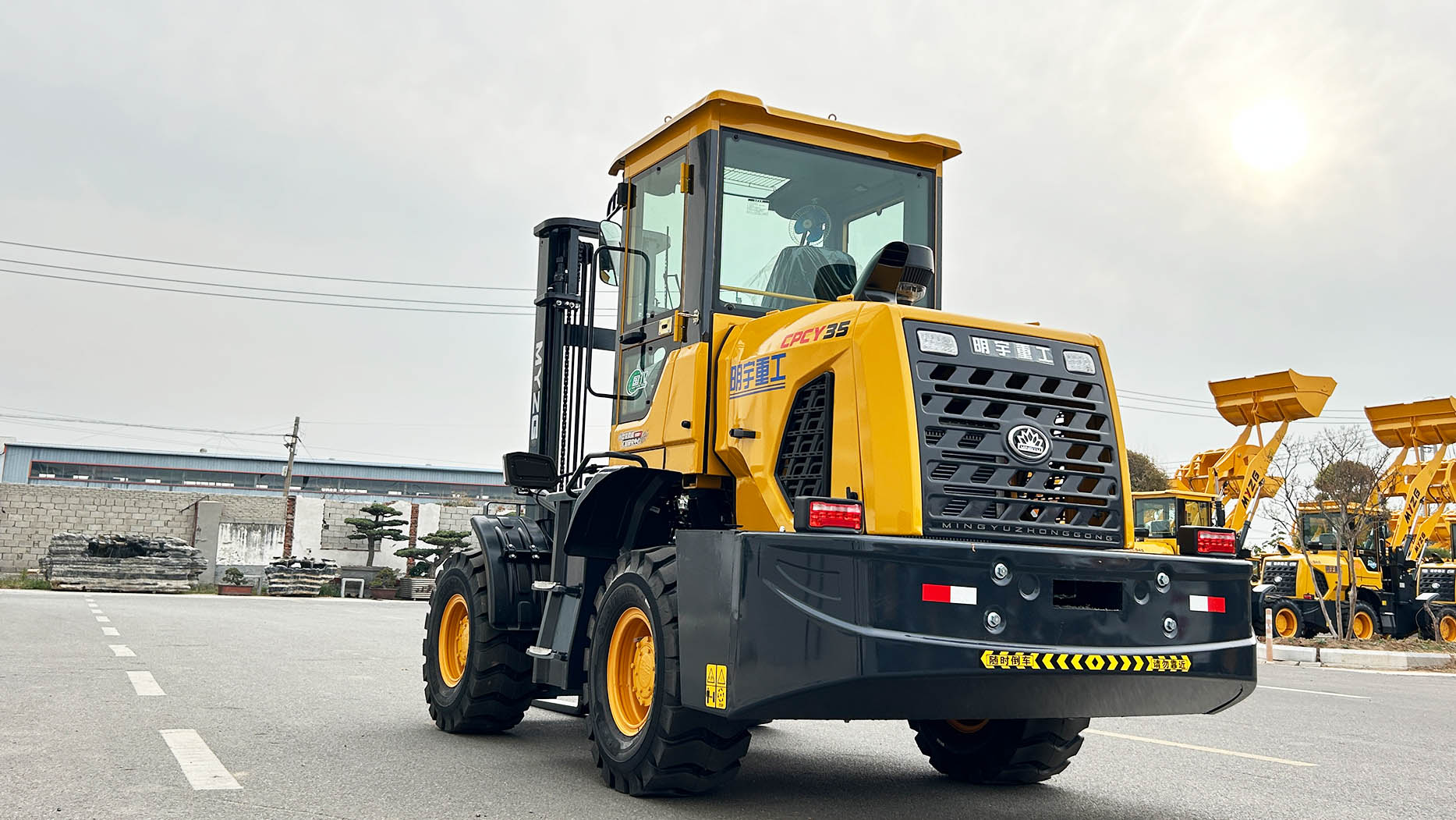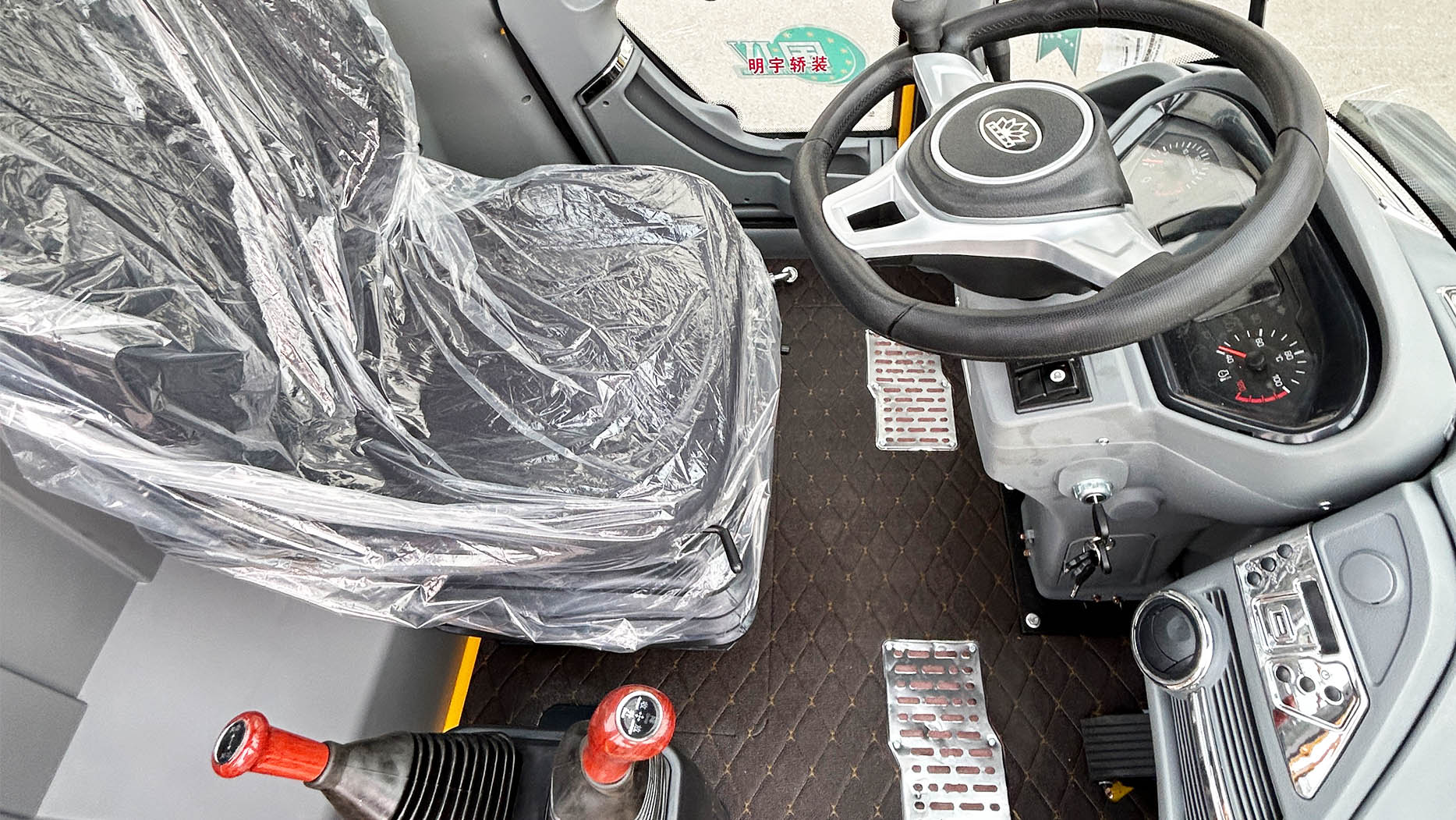The rough terrain forklift stands as a titan of versatility in challenging outdoor environments. Unlike their warehouse-bound cousins, these robust machines, such as the B28 Off-road forklift or a heavier 5T Off-road forklift, are engineered to navigate uneven ground, muddy conditions, and steep inclines while lifting and placing heavy loads. Their distinct capabilities, however, come with a heightened set of operational demands and, consequently, stricter requirements for who can operate them safely and legally.
This technical article will delve into the essential qualifications, training, and certifications required to operate a rough terrain forklift. We will explore the regulatory landscape, the critical skills needed, and the inherent risks that necessitate a highly trained and competent operator, distinguishing them from those qualified to operate standard industrial forklifts.
The Regulatory Cornerstone: OSHA Requirements
In the United States, the Occupational Safety and Health Administration (OSHA) sets the federal standards for powered industrial trucks, which include all types of forklifts. OSHA Standard 29 CFR 1910.178 (General Industry) and 29 CFR 1926.602(d) (Construction) explicitly mandate that only trained and certified operators are permitted to operate forklifts. This applies universally to all classes of forklifts, including the Class VII designation under which rough terrain forklifts fall.
For rough terrain forklifts, the OSHA requirements are particularly stringent due to the inherent hazards of operating on uneven, unpredictable surfaces. The core requirements for anyone aspiring to operate a rough terrain forklift include:

Age Requirement: Operators must be at least 18 years old. This is a federal requirement for operating powered industrial trucks in non-agricultural settings.
Training and Certification: This is the most crucial aspect. OSHA mandates that forklift operator training must consist of three distinct components:
Formal Instruction (Classroom/Online): This covers theoretical knowledge, including:
Principles of forklift stability (the "stability triangle" in rough terrain is particularly critical).
Rough terrain forklift specific controls and instrumentation.
Operating instructions, warnings, and precautions unique to rough terrain models (e.g., telescopic boom operation, outrigger deployment).
Hazards associated with rough terrain operation (slopes, dips, soft ground, overhead obstructions, high winds).
Pre-operational inspection procedures (daily checks).
Fueling/charging procedures.
Load handling techniques specific to uneven surfaces.
Safety rules and regulations (OSHA standards, company policies).
Understanding load capacity charts and data plates, especially critical for rough terrain models where stability can be compromised by ground conditions.
Emergency procedures, including what to do in a tip-over situation (staying in the cab, bracing).
Practical Training (Hands-On): This involves actual operation of the rough terrain forklift under the supervision of a qualified trainer. This hands-on experience is critical for developing proficiency and includes:
Maneuvering in various terrain conditions (slopes, uneven surfaces, confined areas).
Picking up, transporting, and placing loads safely on uneven ground.
Understanding load balancing and stability.
Operating specific attachments (e.g., bucket, truss boom, work platform).
Proper use of outriggers (if applicable).
Safe traveling with and without a load.
Parking procedures.
Performance Evaluation: The final step where the operator's competence is assessed in the workplace by the employer or a designated, qualified evaluator. This ensures the operator can safely and proficiently operate the specific rough terrain forklift they will be using in the actual work environment.
Site-Specific Training: OSHA emphasizes that training must be specific not only to the type of equipment but also to the workplace environment where it will be operated. This means an operator certified on a B28 Off-road forklift at one construction site might need additional site-specific training if they move to a different site with unique hazards or different models of rough terrain forklifts.
Refresher Training and Re-Evaluation: Forklift operator certification is not a one-time event. Operators must receive refresher training and be re-evaluated at least once every three years. Additionally, refresher training is required if:
The operator has been observed operating the forklift unsafely.
The operator has been involved in an accident or a near-miss incident.
The operator is assigned to operate a different type of forklift.
Workplace conditions change in a way that could affect safe operation.
 Beyond the Regulations: Essential Skills for Rough Terrain Operators
Beyond the Regulations: Essential Skills for Rough Terrain Operators
While meeting regulatory requirements is foundational, a truly competent rough terrain forklift operator possesses a refined set of skills that go beyond basic certification:
Exceptional Spatial Awareness: Operating a 5T Off-road forklift on uneven terrain requires a keen understanding of the machine's footprint, load dimensions, and the surrounding environment, especially regarding overhead obstructions, dips, and inclines.
Advanced Stability Understanding: Rough terrain forklifts have a dynamic center of gravity that shifts significantly with loads, boom extension (for telehandlers), and changes in ground conditions. Operators must instinctively understand how these factors affect stability and adjust their driving and lifting techniques accordingly to prevent tip-overs. This includes knowledge of the load capacity chart and how it changes with boom angle and extension.
Terrain Reading and Navigation: The ability to assess ground conditions (soft soil, loose gravel, mud, slopes) and choose appropriate paths and speeds is critical. A skilled operator can "read" the terrain to minimize risks.
Precision Load Placement: Especially with telescopic booms, placing loads accurately at height or reach requires fine motor control and depth perception.
Problem-Solving and Decision-Making: Unforeseen circumstances (e.g., sudden soft patch, shifting load, equipment malfunction) demand quick and safe decision-making.
Mechanical Aptitude (Basic): Understanding the basic mechanics of the machine, including its hydraulic system, engine (for diesel models), and the function of outriggers, is beneficial for daily inspections and identifying potential issues.
Communication Skills: Effective communication with ground personnel, especially during blind lifts or in noisy environments, is vital for safety.
Physical and Mental Fitness: Operating heavy machinery, especially on rough terrain, demands good coordination, vision, hearing, and the ability to maintain focus for extended periods. Fatigue can significantly impair judgment.
Distinguishing Rough Terrain from Industrial Forklift Operators:
The key differentiating factor for rough terrain forklift operators is the operating environment and the design of the equipment.
Industrial Forklifts (Class I-VI): Primarily designed for indoor, paved, or smooth concrete surfaces. They often operate in warehouses, factories, and distribution centers. While they also require OSHA certification, the hazards are generally related to confined spaces, pedestrian traffic, and smooth surface driving.
Rough Terrain Forklifts (Class VII): Built specifically for outdoor, unimproved surfaces. Their larger pneumatic tires, robust frames, and higher ground clearance allow them to operate where standard forklifts cannot. This specialized design means the operator needs a different set of skills and training to manage the unique stability challenges posed by uneven ground, slopes, and the extended reach of telescopic booms. Operating a B28 Off-road forklift on a muddy construction site is a fundamentally different task than operating a reach truck in a dry warehouse.
The Role of Specific Forklift Types:
B28 Off-road forklift (Vertical Mast Type): This typically refers to a rough terrain forklift with a conventional vertical mast, similar to a standard sit-down counterbalanced forklift but built for rugged conditions. Operators need to be proficient in managing stability on slopes, avoiding ruts, and understanding the machine's turning radius in confined outdoor spaces.
5T Off-road forklift (often a Telehandler/Variable Reach): A "5T" (5-ton or 5,000 kg) off-road forklift is a significant machine, often implying a telehandler (variable reach rough terrain forklift). Operating these machines demands advanced skills in boom extension, load chart interpretation (which changes dynamically with boom angle and extension), and careful placement of loads at height and reach. The ability to use stabilizers (outriggers) on a 5T Off-road forklift adds another layer of complexity and training requirement.
 Consequences of Unqualified Operation:
Consequences of Unqualified Operation:
Allowing an unqualified individual to operate a rough terrain forklift carries severe risks:
Accidents and Injuries: Tip-overs, dropped loads, and collisions are far more likely on uneven terrain. These can lead to serious injuries or fatalities for the operator and those around them.
Equipment Damage: Misuse can cause significant and costly damage to the forklift itself.
Regulatory Fines: OSHA imposes substantial penalties on employers who fail to comply with training and certification requirements.
Legal Liability: In the event of an accident, employers can face considerable legal liability if an unqualified operator was involved.
Conclusion: Skill, Training, and Certification are Non-Negotiable
Operating a rough terrain forklift is a specialized and demanding skill. It is not a task for just "anyone" who knows how to drive a car or even a standard warehouse forklift. The unique challenges of operating machines like the B28 Off-road forklift or a heavier 5T Off-road forklift on unpredictable outdoor terrain necessitate a comprehensive understanding of stability principles, advanced operational techniques, and strict adherence to safety protocols.
Therefore, only individuals who are at least 18 years old, possess the necessary physical and mental capabilities, and have successfully completed a rigorous, OSHA-compliant training and certification program specific to rough terrain forklifts can operate these powerful machines. This training must include formal instruction, hands-on practical exercises, and a final performance evaluation in the actual work environment. Ongoing refresher training and re-evaluation ensure that operators maintain their competence. In the realm of heavy equipment, when it comes to rough terrain forklifts, qualification isn't just a formality—it's a critical component of safety and operational success.
Post time:May.21.2025
